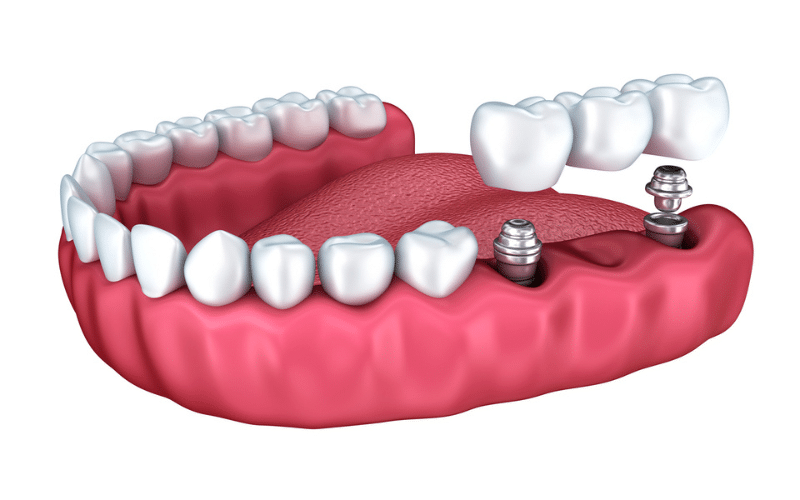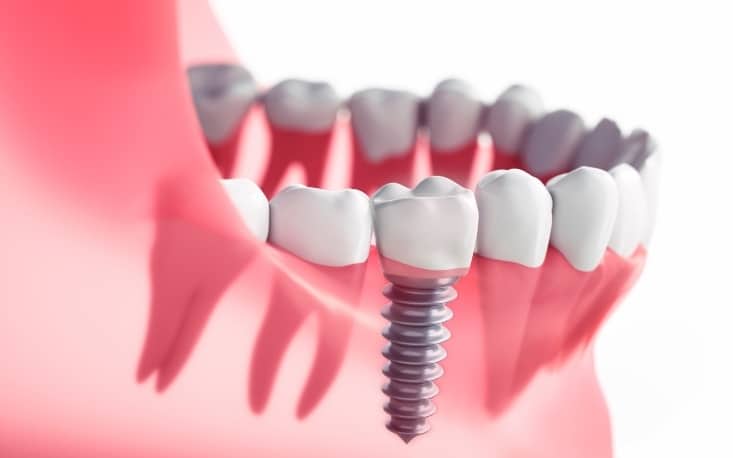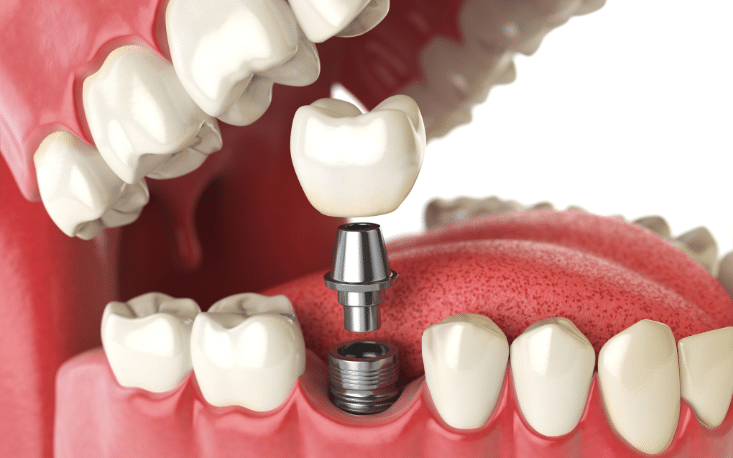ONLINE SCHEDULING AND VIRTUAL CONSULTS AVAILABLE

Dental Implant Care 101: Tips for Long-Lasting Results

Dental implants are a revolutionary innovation in modern dentistry, offering a permanent and aesthetically pleasing solution for missing teeth. Unlike dentures, dental implants in Plantation, FL, mimic the natural root structure of a tooth, providing exceptional stability and function. But just like your natural teeth, dental implants require proper care to ensure their longevity and optimal performance. This blog delves into the essential practices for exceptional dental implant care. Also, the blog will empower you to maintain a healthy smile and enjoy the benefits of your implants for years to come.
Understanding Dental Implants
Before diving into the nitty-gritty of care, let’s revisit the basics. Dental implants in Plantation, FL, are typically made of titanium, a biocompatible metal that fuses naturally with your jawbone over time. This fusion provides a sturdy foundation for a replacement tooth, which can be a crown, bridge, or denture. The entire implant system consists of three main parts:
- Implant body: The screw-like post is surgically inserted into your jawbone, acting as the artificial tooth root.
- Abutment: A connector piece that attaches to the implant body and protrudes above the gum line.
- Restoration: The visible crown, bridge, or denture that replicates the natural tooth structure and appearance.
The Secrets to Flawless Dental Implant Care
Now that you’re familiar with the implant components let’s explore the key practices that will keep your smile bright and your implants healthy:
Brushing and Flossing Fundamentals
Just like natural teeth, dental implants require diligent cleaning to prevent plaque buildup and gum disease. Here’s how to ensure a thorough clean:
- Brushing: Brush your teeth twice daily for at least two minutes each time. Use a soft-bristled toothbrush specifically designed for dental implants. These brushes have softer bristles at the tip to clean around the implant and abutment without damaging the restoration or irritating your gums.
- Flossing: Flossing daily is crucial for removing plaque and food debris between teeth and around the implant site. Consider using a floss threader or a water flosser specifically designed for implants to navigate around the restoration and reach those hard-to-reach areas.
Mastering the Brushing & Flossing Technique
Brushing and flossing your implants might require a slightly different technique than cleaning natural teeth. Here are some pointers:
- Brushing: Use a gentle, circular motion while brushing the implant crown, abutment, and surrounding gum tissue. Avoid using harsh scrubbing motions that could damage the implant or irritate your gums.
- Flossing: Thread the floss carefully between the implant and neighboring teeth. Instead of a sawing motion, gently move the floss back and forth to remove plaque and debris.
Embrace Interdental Cleaning Tools
While brushing and flossing are the cornerstones of oral hygiene, interdental cleaning tools can provide an extra layer of defense against plaque buildup around implants.
- Interdental brushes: These small, cone-shaped brushes are ideal for cleaning between the implant and neighboring teeth. They also reach areas that traditional floss may miss.
- Water flossers: These devices use a pressurized stream of water to clean teeth and remove plaque. They can be particularly helpful for individuals with dexterity limitations or those who find flossing challenging.
Schedule Regular Dental Checkups
Routine dental visits are vital for maintaining overall oral health and the longevity of your dental implants. Your dentist will thoroughly examine your implants, gums, and surrounding teeth to detect any potential issues such as peri-implantitis (inflammation around the implant) or loose implants. They will also perform professional cleaning to remove any stubborn plaque or tartar buildup that your regular cleaning routine might miss.
Maintain a Healthy Diet for Optimal Implant Success
A well-balanced and nutritious diet is crucial for not only your overall health but also the longevity and success of your dental implants. Here’s a breakdown of key dietary considerations to keep your smile bright and your implants healthy:
Prioritize Nutrient-Rich Foods
- Fruits and Vegetables: Pack your plate with a vibrant mix of fruits and vegetables. They are excellent sources of vitamins A, C, and K, which are essential for promoting gum health and tissue healing. Leafy greens like spinach and kale are particularly beneficial.
- Lean Protein: Include lean protein sources like fish, chicken, beans, and lentils in your diet. Protein is vital for building and maintaining strong bones, including the jawbone that supports your implants.
- Calcium-Rich Options: DRemembercalcium! Dairy products like yogurt and cheese, leafy greens, and fortified foods provide essential calcium for bone health and implant stability.
Limit Detrimental Foods
- Sugar and Acid: Sugary and acidic foods like candy, soda, and some fruits can contribute to plaque buildup and increase the risk of peri-implantitis, an inflammatory condition around the implant. Limit these foods and opt for water or unsweetened beverages to stay hydrated.
- Sticky and Hard Foods: While your implants are strong, they’re not invincible. Avoid excessively sticky or hard foods like caramels, hard candy, nuts, and raw vegetables for the first few weeks after placement. These can put undue stress on the implant site and potentially cause damage.
Curb Bad Habits
- Smoking: This is a major health risk. You can quit smoking by setting a quit date, identifying your triggers (stress, social gatherings), and replacing cigarettes with healthier alternatives (exercise, chewing gum). There are also nicotine replacement therapies and medications available to help you manage cravings.
- Unhealthy Eating: Combat unhealthy eating by planning your meals, prepping healthy snacks in advance, and limiting processed foods. Focus on incorporating fruits, vegetables, and whole grains into your diet.
Proper care and maintenance are crucial for the long-term success of dental implants. Following the tips outlined in this guide, you can ensure your dental implants last for many years. By prioritizing your oral health and following these guidelines, you can enjoy the benefits of a healthy, functional smile for a lifetime. So, if you’re looking for dental implants in Plantation, FL, then visit us at My Dentist For Life Of Plantation today! We’re here to help you achieve your smile by replacing missing teeth with implants.





